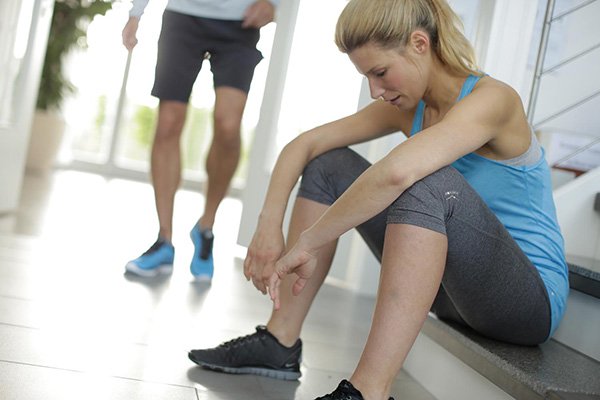
Do you find yourself yawning, rubbing your eyes and dozing off around 2:00 p.m. every day? If so, you’re not alone. Excessive daytime sleepiness is a common complaint among Americans.
Fatigue is sometimes caused by a medical problem. But if a trip to the doctor reveals that you’re OK, certain behaviors may be to blame for your sleepiness. Making simple tweaks to your lifestyle may be all that you need to rev up energy levels.
Here are the top 8 sleep offenders:
1. Caffeine. It’s a vicious cycle: you need that cup of coffee to wake up, but the effects of caffeine make falling asleep difficult. Caffeine can stay in your body for up to eight hours, so only drink a cup or two of coffee during the a.m. hours.
2. Alcohol. That glass of wine or beer with dinner may seem like it helps you unwind. In reality, alcohol causes disrupted sleep. Alcohol increases the number of times you wake up during the night, making you feel unrested come morning. Finish up happy hour at least three hours before bed to get a better night’s sleep.
3. Dehydration. One of the symptoms of dehydration is fatigue. Not getting enough water can sap your energy levels and cause headaches, lightheadedness and nausea. Institute of Medicine recommends men drink about 13 cups of water each day, and women aim for 9 glasses of water per day.
But be careful not to drink too much too close to bedtime or else you’ll be making a midnight trip to the bathroom.
4. Poor nutrition. Eating unhealthy, processed foods – like chips, candy and soda – can cause your blood sugar levels to skyrocket and then plummet, which can leave you feeling drained. Taking in nutritious foods – like fruits, veggies, whole grains, lean sources of protein and low-fat dairy — every few hours can keep blood sugar levels stable.
Avoid eating a lot of food right before bed. Lying down may slow the digestion process and make falling asleep more difficult.
5. Lack of exercise. The National Sleep Foundation says that people who exercise report better sleep at night. Plus, one of the easiest ways to get an energy boost is to exert energy. Physical activity improves blood flow and brings more oxygen to the cells. Getting 150 minutes of moderate-intensity activity per week – that breaks up to 5, 30 minute workouts – can help you feel more alert during the day.
6. Exercising too close to bedtime. Working out late at night makes falling asleep challenging for some people. Wrap up your exercise session three hours before bed time and you’ll fall asleep more easily.
7. Your weight. People who are overweight are more likely to have sleep apnea – a condition marked by snoring and interrupted sleep. Losing weight and working with your doctor to get help for sleep apnea can help you feel better rested.
8. Sleep deprivation. The most common reason for daytime fatigue comes from not logging enough shut-eye during the night. Most adults need 7 to 8 hours of sleep overnight to function well during the day. Sleeping in a cool, dark room, going to bed and waking up at the same time each day, and removing distractions from the bedroom – like computers and TVs – can help you get a better night’s sleep.
What’s your bedtime routine? I wind down by reading a book for a few minutes.
Sources
http://www.sleepfoundation.org/sites/default/files/RPT336%20Summary%20of%20Findings%2002%2020%202013.pdf
http://www.mayoclinic.com/health/water/NU00283
http://women.webmd.com/features/why-so-tired-7-causes-fatigue?page=2
http://www.sleepfoundation.org/sleep-facts-information/myths-and-facts


Leave a Reply